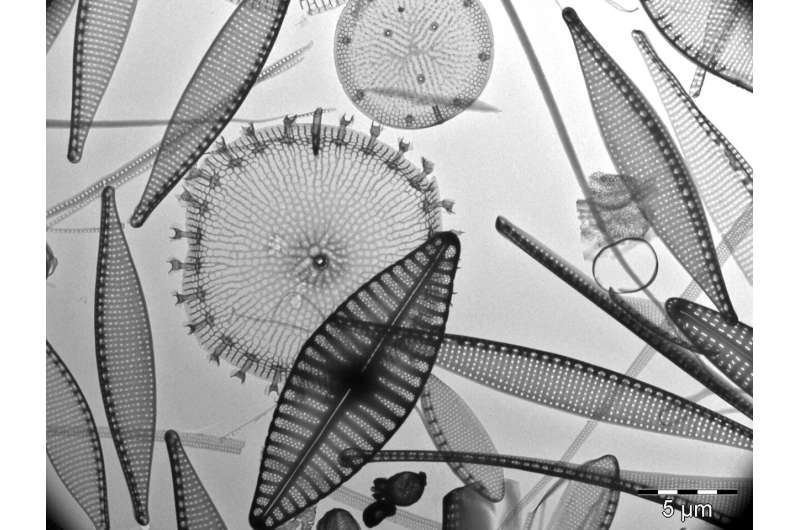Based on one of the longest time series of phytoplankton in the Southern Hemisphere, Australian researchers have found a significant warming signature in the phytoplankton community overtime. Credit: P. Ajani
Understanding the impacts of global warming on phytoplankton- the foundation of marine ecosystems -is critical to predicting changes in future biodiversity, ocean productivity, and ultimately fisheries production.
Based on one of the longest time series of phytoplankton in the Southern Hemisphere, Australian researchers have found a significant warming signature in the phytoplankton community overtime.
The data set was collected over almost 90 years from 1931-2019 from a Pacific Ocean coastal station offshore from Sydney.
The University of Technology Sydney (UTS) led research, published in Frontiers in Marine Science, provides insights into the potential traits that may determine the adaptive capacity or survivability of species under climate change.
Lead author, Dr. Penelope Ajani, said environmental data showed ocean temperature had risen 1.8°C over 90 years in south eastern Australia, one of the greatest warming regions in the world.
"We examined the phytoplankton community response to this long-term ocean warming using the Community Temperature Index (CTI), "Dr. Ajani said.
The CTI is an index of the preferred temperature of a phytoplankton community.
"We found a significant increase in the CTI overtime which suggests that the relative proportion of warm-water to cold-water species has increased," Dr. Ajani said.
The researchers say that an almost 40% increase in the chain-forming diatom species Leptocylindrus danicus may provide a glimpse of the functional traits necessary to be a "winner" under climate change.
"This species does well in warmer water, reproduces rapidly and can survive in a wide temperature range. Together with the formation of resting spores and a high degree of variability in size, shape and physiology, these traits may point to the adaptive capacity or survivability of species under climate change, " Dr. Ajani said.
More information: Penelope A. Ajani et al, Global Warming Impacts Micro-Phytoplankton at a Long-Term Pacific Ocean Coastal Station, Frontiers in Marine Science (2020). DOI: 10.3389/fmars.2020.576011
Provided by University of Technology, Sydney
























